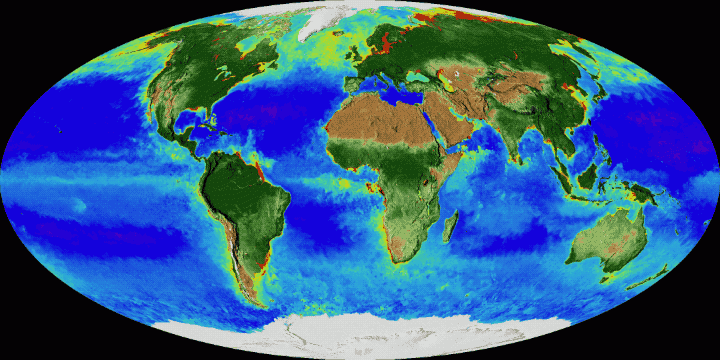Atlantic Ocean's circulation system may be revitalised by Indian Ocean
A Yale University study has revealed that the current slowdown of the Atlantic Ocean might be reversed because of the global warming effect on the Indian Ocean.
One of the questions of importance to climate change researchers is a slowdown of the main circulation system of the Atlantic Ocean. Last year, it was reported that the ocean's circulation was the weakest in 1,600 years, which could lead to greater flooding and extreme weather.
However, help, it seems, could come from unexpected quarters – from the Indian Ocean.
It seems that global warming has initiated an ocean-to-ocean exchange between the two oceans, which may potentially stabilise the Atlantic Ocean meridional overturning circulation (AMOC).
AMOC, one of the largest circulation systems in the world, works by delivering cold water to South Atlantic and warm water to North Atlantic. Its stability has existed for millennia but the current global warming trends, collated over the last 15 years, have started affecting it.
Alexey Fedorov, who led the Yale University research on the subject, stated in an article published in the Nature Journal, stated: "There is no consensus yet, but I think the issue of AMOC stability should not be ignored. The mere possibility that the AMOC could collapse should be a strong reason for concern in an era when human activity is forcing significant changes to the Earth's systems."
He further stated that the lack of AMOC stability may have many repercussions – it may cause harsh winters in Europe and storms in Africa.
Federov has worked out the model along with Shineng Hu from the Scripps Institution of Oceanography, University of California at San Diego using observational data and computer modelling to plot out the changes.
According to the researchers, India Ocean is the most affected by global warming, and warms the fastest. However, what happens when it warms up is interesting. Because of warming, it generates additional precipitation, which draws air from areas such as the Atlantic.
The increased precipitation over the Indian Ocean decreases the precipitation over the Atlantic Ocean. This decreased precipitation in the Atlantic leads to higher salinity because of the lack of dilution due to rainwater. When this salty water moves north because of AMOC, it gets cooler and sinks.
However, the researchers warn that this inter-ocean balance is fragile. If other oceans, most importantly the pacific start warming up, it will go for a toss.

© Copyright IBTimes 2025. All rights reserved.





















